Munich - Center of Germanic Culture
In the planning stages of the honeymoon, Monicca and I were faced with a dilemma. Since we could only go on leave for three weeks, we had to decide between Berlin and Munich. While Berlin is one of Europe's most vibrant, trendy, and hip countries, full of nationalities and almost New York-like in terms of vibe, we ultimately decided to go with Munich, seeing as how the city was perfectly in line with our theme to visit medieval European kingdoms.
* Size-wise Munich is only a third of Berlin. So while it is a city of over 1.5 million people, locals (who are very warm and friendly) like to brag that it has maintained a charming, medieval-town feel. And we agree!
* Culture is where Munich shines. While Berlin is very industrial, artsy, and multicultural, Munich is at the heart of all things German. Its Gothic and Neo-classical architecture, love of sausages, greater love for beer, and proximity to numerous medieval towns and castles, makes Munich the perfect entry-point to the very definition and idea of Germania.
* It's not surprising then that Munich and Berlin have a deep-seated rivalry, the two contrasting greatly in that:
- Munich is pretty expensive; Berlin is relatively affordable.
- Munich is conservative and Catholic; Berlin is liberal and Lutheran.
- Munich has a lot of parks, monuments, and greenery; Berlin is a city full of buildings.
- Munich has a laid-back, traditional feel; Berlin is a fast-paced metropolis.
* The spire-y Old Town Hall, built in 1392, once served as the Municipal Center of the city until that office was relocated to the Marienplatz.
* Across the town hall stands the Heiliggeistkirche (trying repeating that 5 times!), a Gothic church originally belonging to the Hospice of the Holy Ghost. Beautiful bird/angel decors lined the ceiling on our visit.
* A popular spot among locals and tourists is the Viktualienmarkt, a food market and square found in Central Munich.
* Originally a medieval farmers' market, the area has evolved to become a popular gourmet center.
* With over 140 stalls and shoppes, one can find a wide array of game, poultry, spices, cheese, fish, juices, flowers, and exotic fruits.
* Historically, the center of every city has the highest real estate value in all the municipality. Which makes it amazing that time and time again, citizens of Bavaria have worked hard to preserve the authenticity of this area; voting against numerous planned constructions of multi-purpose buildings on this site.
* This shows the Bavarian love and respect for their culture and heritage, and is perfect in keeping the "small town" feel of this city.
* The Wirtshaus in der Au, built in 1901, is one of Munich's more famous beer gardens, known for its dumplings and jazz music.
* Almost every street has a restaurant, tavern, cafe, and beer garden.
* No visit to Munich would be complete without paying homage to the "spiritual center of Oktoberfest", the legendary Hofbrauhaus. More on this life-changing locale on an upcoming entry!
* Find a corner and it's probably going to be a cafe / beer garden with outdoor tables, perfect for people watching. Socializing (and drinking) is a way of life for Bavarians!
* Another great thing about Munich is how walkable it is! While there is a very efficient metro system in place, all the sights can be traversed easily by foot.
* Of all the German Cities, Munich has the strongest economy and the lowest unemployment rate. Located here are the global headquarters of Allianz, BMW, and Siemens.
* The Neo-Classical Glyptothek was built by Bavarian King Ludwig I to house his collection of Greek and Roman sculptures.
* The stone gentleman on the right looks uncannily like Hugh Jackman!
* The Propylaea is one of Munich's old city gates, and is based on the monumental entrance of the Propylaea for the Acropolis in Athens. (See Acropolis of Athens)
* The couple blending in with College students conducting random experiments on the grounds around the Propylaea.
* A great example of the well-known German culture of efficiency and precision. All public clocks chime at the same time!
* The Max-Joseph-Platz is a large square named after Bavarian King Maximilian Joseph, who kinda resembles Emperor Palpatine (Darth Sidious).
* This house must be popular with the children during Halloween!
* Catching a glimpse of the Neptune Fountain in the Old Botanical Garden of Munich aboard our Hop-On Hop-Off bus.
* The Karolinenplatz Obelisk was built to commemorate the 30,000 Bavarian soldiers who fought with Napoleon and lost their lives during the French invasion of Russia. Bavaria was an ally of France back in those days.
* Ending the day in what would become our favorite restaurant near the hotel, Burger and Bier, a joint popular with the hipsters and youngsters!
* Enjoying this bottle of Maxlrainer Schloss Trunk, another solid ending to a long day.


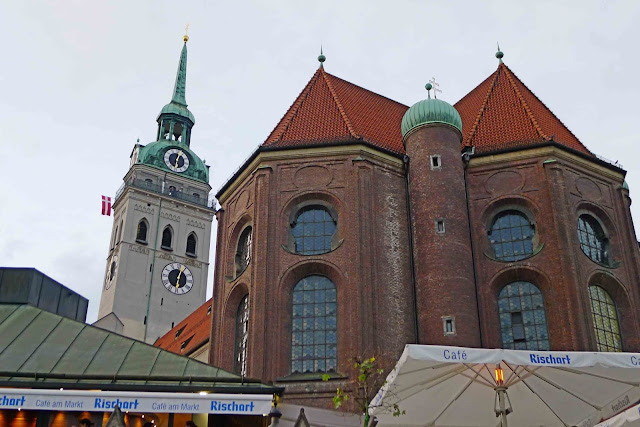
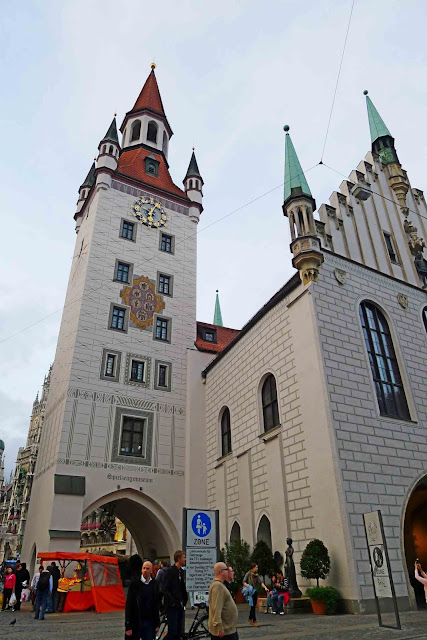



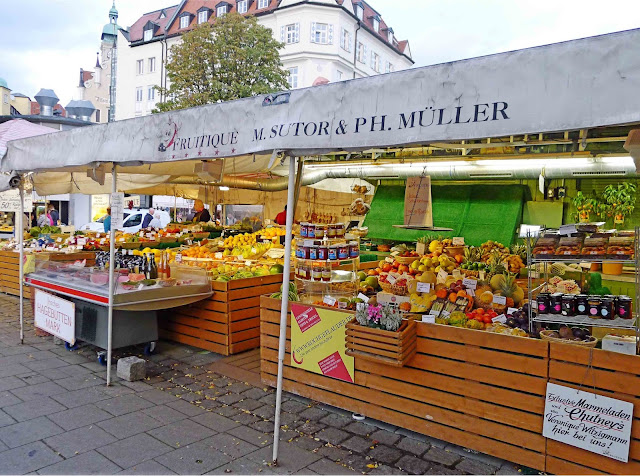









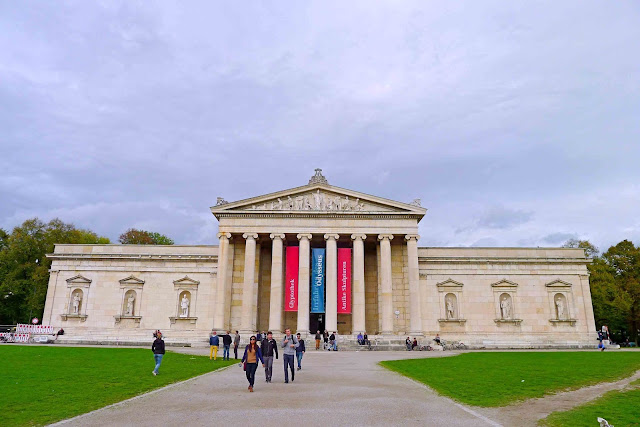
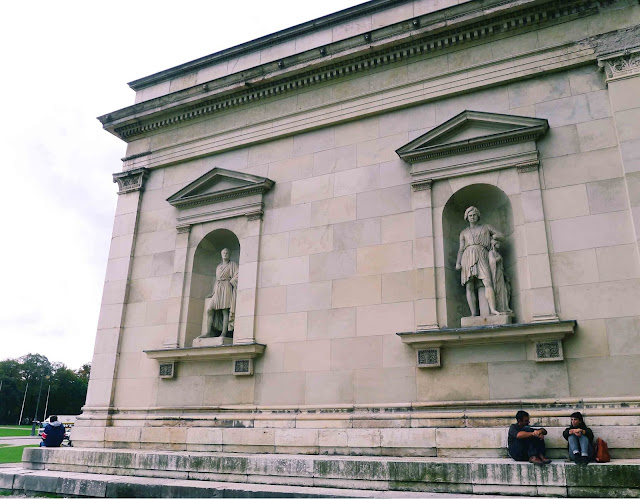









Comments
Post a Comment